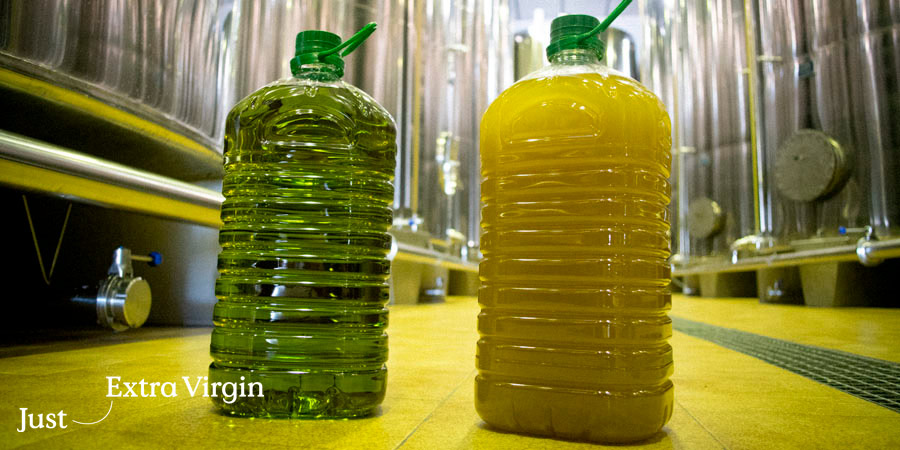
This is the eternal question, the one that generates most debate among producers and consumers, the one everyone speaks about when the early olive harvest begins: should we choose filtered or unfiltered olive oil?
Although the decision to filter or not to filter seems easy, we must bear in mind that it is more complex than we might at first think. This is due to the fact that the process of filtering olive oils involves economic, commercial, human resources and even marketing policy factors. All these factors are managed by each oil mill independently, depending on its needs and/or capacities.
However, we “filter” here all the information available in order to try to clear up any doubts related to this process.
First of all, we will answer the following questions to put ourselves in context.
What is the process of filtering olive oil?
Simply explained, it is the process by which solid particles, coming from the skin, pulp and stone, and watery particles, coming from the fruit itself or from the addition of water in the extraction process, are eliminated from the freshly extracted olive juice.
So… why are olive oils filtered?
Freshly extracted olive juice could be considered as an incomplete food regarding its processing. In this sense, the product would not enjoy the required stability over time to maintain its commercial category.
This is where admirers and detractors begin to emerge. There are those who think that unfiltered olive oils keep their intrinsic properties intactand filtering would be an “over-processing of the food” and, on the other hand, there are those who think that it is a mistake not to filter olive oils, as the “flavour”, appearance and quality of the oils deteriorate after a certain period of time.
At Just Extra Virgin we believe that the most rigorous way to “shed light” on this dilemma is to answer two new questions:
What does the scientific community say?
We made a bibliographic reviewof the latest studies related to the influence of the filtering process of olive oils and found different advantages and disadvantages of both procedures. We were also able to draw some brief conclusions from these studies. Some of them are listed below:
Unfiltered oil:
Disadvantages
- Appearance of physico-chemical and sensory defects that degrade olive oils over time. (Spika, M. et al., 2019)
- Decrease of antioxidant compounds over time(Ghanbari, E. et al., 2020).
Advantages
- Higher initial phenol content.(Breschi, C. et al., 2019).
Filtered oil:
Disadvantages
- Initial loss of water-soluble phenolic compounds that are responsible for the antioxidant action of the oil itself. (Jabeur, H. et al., 2017)
Advantages
- Higher content, from the beginning, of antioxidants such as Vitamin E.(Jabeur, H. et al., 2017)
- Absence of enzymatic and degradative activity from the beginning due to low water activity(Breschi, C. et al., 2019).
- Preservation of sensory characteristics(Guerrini, L., et al., 2020)
What do consumers have to say? Filtered or unfiltered olive oil
To find out what you think about it, we prepared a survey in which we wanted to observe your preferences. Two questions included in the form were related to the preferences of each consumer when choosing filtered or unfiltered oil.
To the question: Which do you prefer, filtered or unfiltered oil?
We found that consumer preferences are not clear-cut. There is no strong choice for filtered or unfiltered oil (60.5% filtered, 39.5% unfiltered). This may be due to the different situations we address later.
To the question: Why do you prefer filtered or unfiltered oil?
In Graph 1 and 2 those options that consumers have chosen to decide for filtered or unfiltered oil are shown. “Other” was one of the options included with a free answer.
FILTERED OLIVE OIL
Graph 1.- Responses obtained from consumers who have chosen the option of consuming filtered olive oils. Where: (*) “Maintains the physical-chemical and sensory properties for longer”.
UNFILTERED OLIVE OIL
Graph 2.- Responses obtained from consumers who have chosen the option of consuming unfiltered olive oil. Where: (*) “Better food that is as little processed as possible (Other)”.
The questions asked, corresponding to the results in Figures 1 and 2, were multiple choice. For this reason, the percentage of each response expresses the number of respondents who have opted for that option. We describe here what the preferences of these consumers were:
If we look at Graph 1 (filtered), “It has no sediment” and “It maintains its physical, chemical and sensory properties for longer” were the options most chosen by consumers who prefer filtered oil, with 53.7% and 52.1% respectively. This means that more than half of the population that consumes filtered EVOO claims to know that these oils are better preserved over time. Likewise, the appearance of the oils is of great importance for this sector of the consumer population. This is corroborated by the following choices: “I do not like the turbidity” and “I like the colour” (of filtered oil), with 21.5% and 14% of the choices.
In the case of Graph 2 (Unfiltered), the predominant option chosen by consumers who prefer unfiltered oil is the one referring to: “It is more nutritious and has more sensory quality“, with 62%. This reflects the trend towards consumption of this type of oil, possibly due to the higher concentration of water-soluble phenols that give unfiltered oils a greater sensation of fruitiness.
However, consumers who choose these oils hold false beliefs about their quality, such as, for example, the following top choices (38% and 29.1%, respectively): “It is fresher” and “It is freshly extracted”. The lack of knowledge of this sector and, specifically of olive oils, leads us to confuse “freshness” with the right harvesting time and, once again, with the visual appearance of the oils. The intense green and opaque tones of unfiltered oils from early extraction give us the sensation of precocity, ignoring the fact that filtered and transparent oils can also be precocious.
If you have come this far by reading this study, we think that we have managed to clear up quite a few doubts around this issue. However, we would like to raise a final question that summarises everything that has been said.
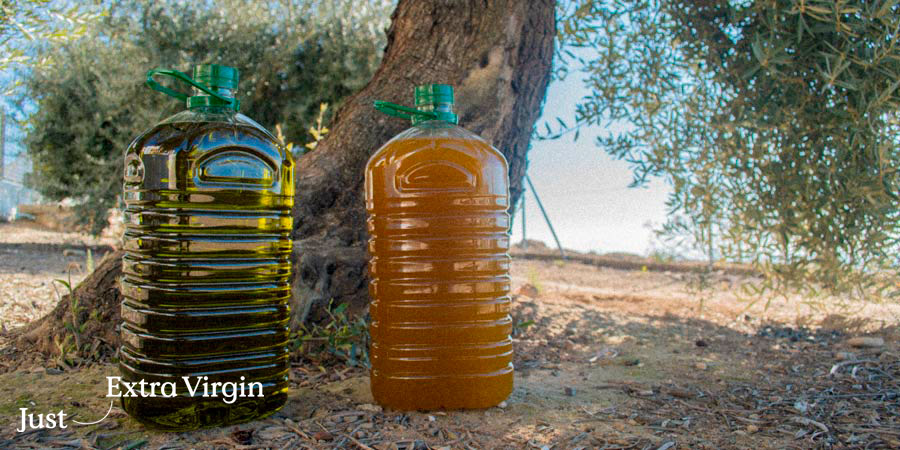
What do we recommend at Just Extra Virgin?
If it is still not clear to us when we should choose filtered or unfiltered oil, Just Extra Virgin is going to give you some recommendations based on our thinking:
“Common sense”.
Do not buy unfiltered oil and do “annual storage” or buy it after a few months from the beginning of the early elaboration, since the degradation and loss of quality of this oil with the passage of time is high.
“Colour”.
Inevitably, it catches our attention, and we like to look at colour,even though this is not indicative of quality. Let us use this, but let us do so with some judgement. We should not buy unfiltered oil with brownish tones and excessive sediments, as it is likely to be highly fermented.
“False beliefs”.
Let’s eliminate the false thoughts of the greater “freshness” and nutritional contribution of unfiltered oils, as this is a characteristic of both, whose only difference is that one has gone through the filtering process and the other has not.
“A safe bet”
If after all that has been explained in this article we still have doubts, choosing a filtered oil will guarantee us a greater durability of the physical-chemical and sensory characteristics over time, as long as the conservation is correct.
In a future post, we will give you some effective tips for storing your oil at home. This way, you will always use it as if it were the first day you bought it.
If you would like to know more about the details of our study, find out the rest of the answers to the survey or consult the bibliographical references, please do not hesitate to contact us. We also invite you to follow us on our social networks: Instagram andFacebook.
Acknowledgements.
Collaboration in obtaining images S.C.A. Alharilla, Porcuna (Jaén).
To each one who anonymously, altruistically and kindly completed the survey.
All the content of this post is a product of the work of Just Extra Virgin, so we do not authorise its reproduction. If you want to help us to improve the sector, we encourage you to share, disseminate and help us to improve our content in an honest, honest and loyal way.
Discover our filtered EVOOs
Find a selection of the best EVOOs in our online shop.




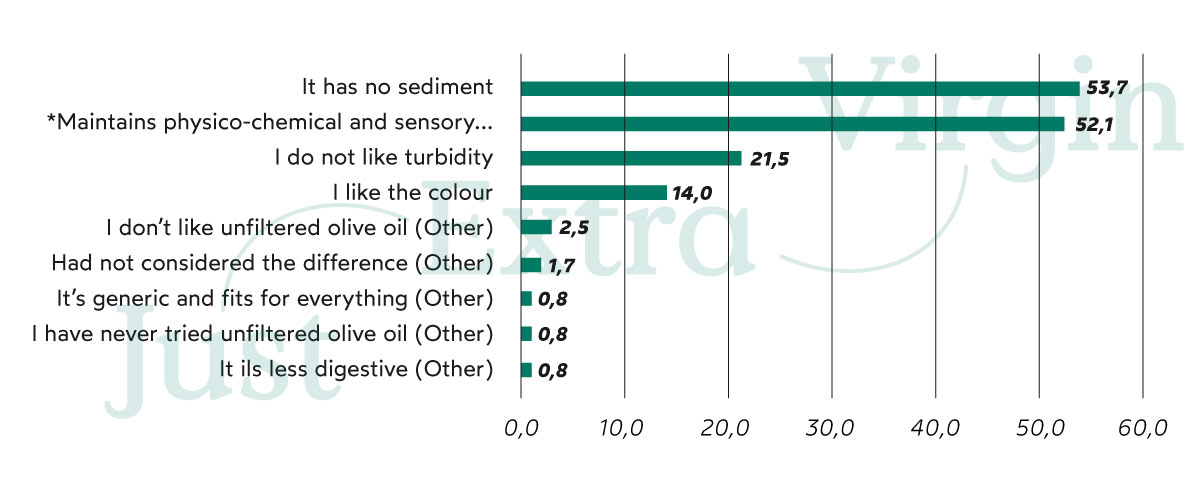
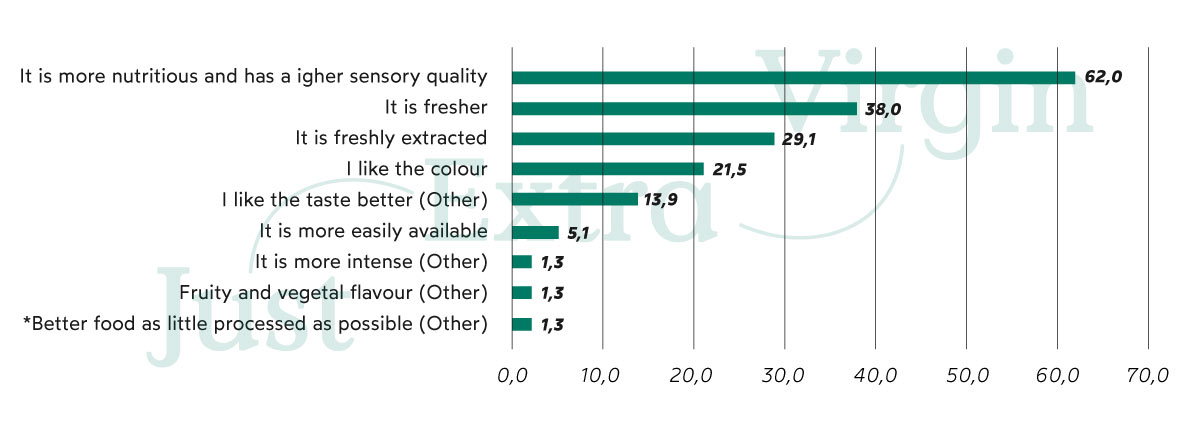
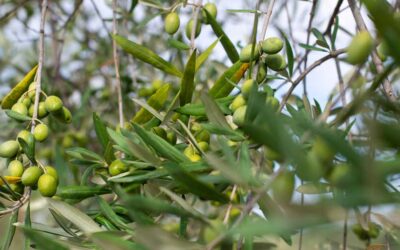
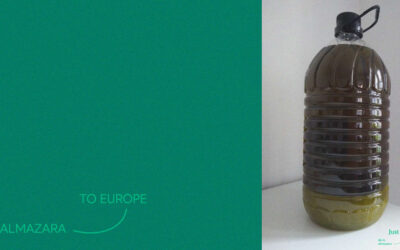
0 Comments